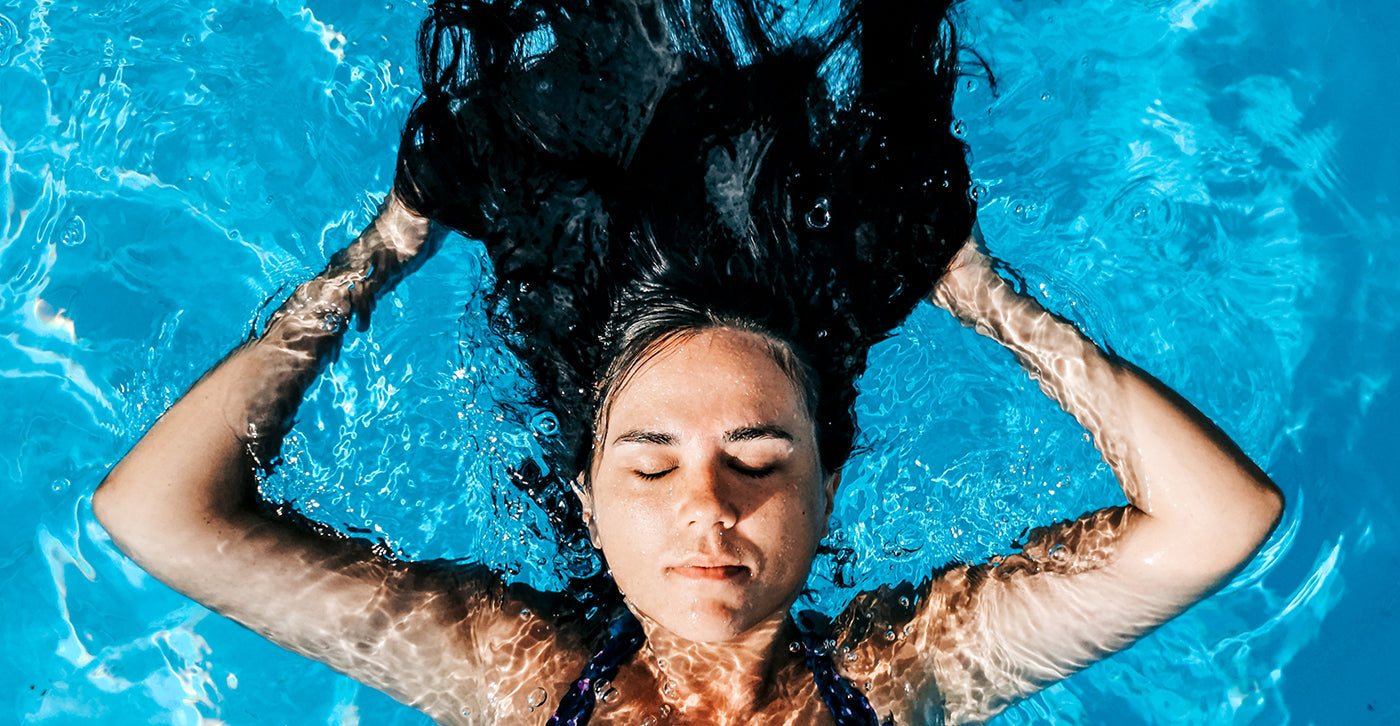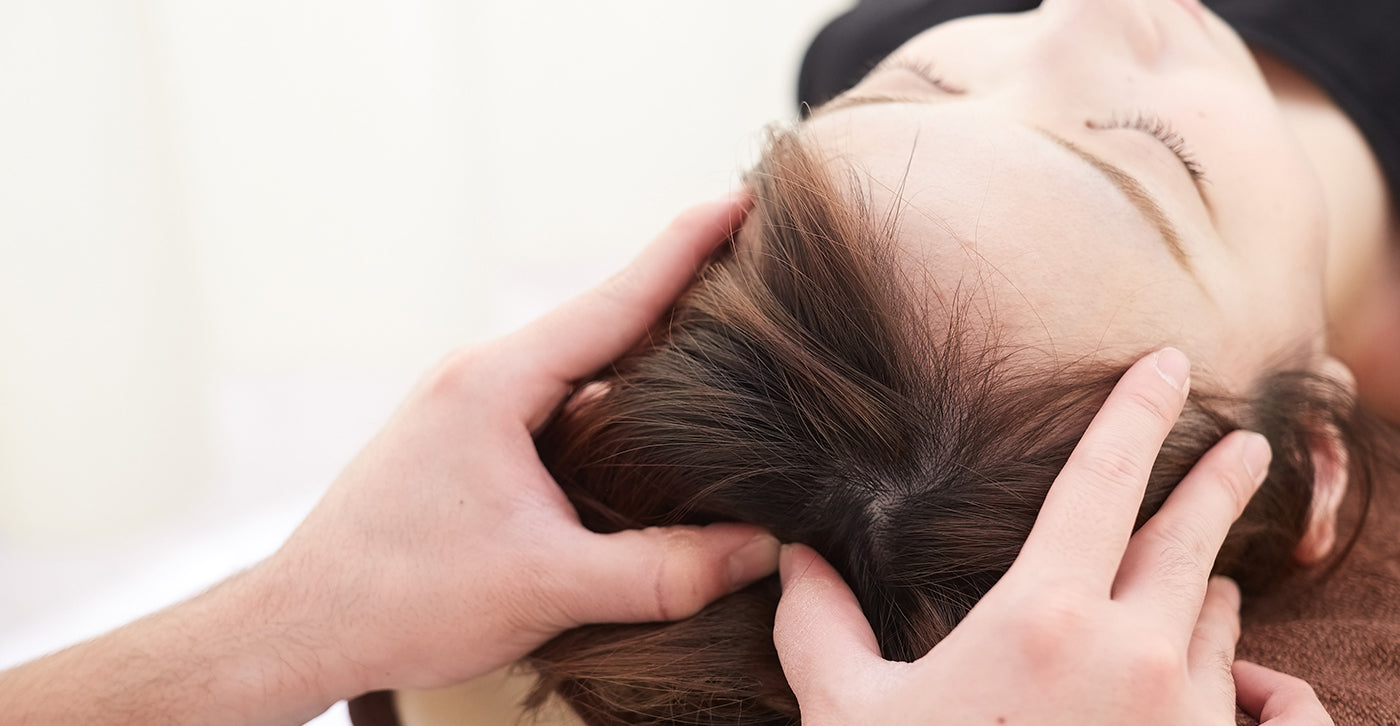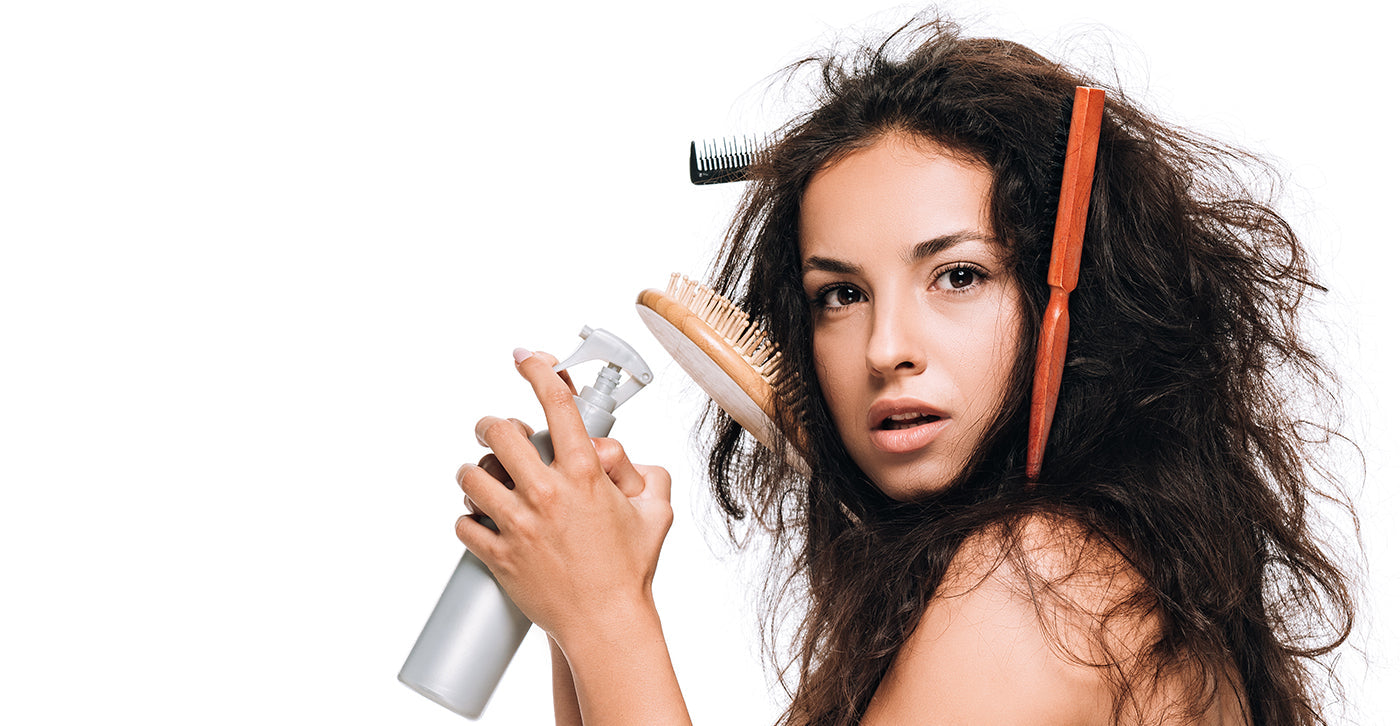It’s that time of year again! Whether you're jetting off on vacation or enjoying some downtime at your chalet, everyone loves spending time in the pool or the ocean. There's nothing like a refreshing dip to beat the heat and soak in some relaxation. But while the water is great for the soul, your hair might not always feel the same way. Pool and sea water can actually take a toll on your locks, causing damage if you're not careful. So, how can you protect your hair while still enjoying all the fun that comes with summer water activities? We've got the answers for you!
How Pool Water Affects Your Hair
Chlorine is commonly used in pools to keep the water clean and free from bacteria. While chlorine does its job of sanitizing, it’s not so friendly to your hair. Over time, exposure to pool water can lead to dryness, split ends, and even color fading for dyed hair.
How Chlorine Damages Hair:
- Strips Natural Oils: Chlorine can strip the hair of its natural oils, leaving it dry and brittle.
- Color Fading: For those with colored hair, chlorine can cause the color to fade more quickly by opening up the hair cuticle.
- Cuticle Damage: Chlorine can damage the hair's outer layer (cuticle), making it rough, and more prone to breakage.
How Sea Water Affects Your Hair
Saltwater from the sea can also cause damage, but in a slightly different way. While it’s not as harsh as chlorine, saltwater can leave hair feeling dry and tangled. The salt absorbs moisture from your hair, and if left unwashed, it can lead to scalp irritation.
How Saltwater Damages Hair:
- Dehydrates Hair: Salt absorbs moisture from your hair, leaving it feeling dry.
- Weighs Hair Down: Excess salt can weigh hair down, making it harder to manage and causing it to look flat or limp.
- Scalp Irritation: Salt can irritate the scalp, causing flakiness or itching if left in too long.
How to Protect Your Hair Before and After Swimming
While exposure to chlorine and saltwater can cause damage, there are steps you can take to protect your hair and minimize the harmful effects of these elements. Here’s how to care for your hair before and after a swim:
1. Wet Your Hair Before Swimming
Before you dive into the pool or take a dip in the sea, wet your hair with fresh water. When your hair is already saturated with fresh water, it’s less likely to absorb chlorine or saltwater. This simple step can go a long way in protecting your hair from dehydration.
2. Use a Leave-In Conditioner or Hair Oil
Before getting in the water, apply a protective leave-in conditioner or hair oil to your hair. These products form a barrier on the hair shaft, preventing chlorine or salt from being absorbed. Look for oils like coconut or argan oil, which not only protect but also nourish your hair.
3. Wear a Swim Cap
If you're serious about protecting your hair from pool water damage, consider wearing a swim cap. While it might not keep your hair completely dry, it can reduce exposure to chlorine and help prevent excessive damage, especially for swimmers who are in the pool often.
4. Shampoo and Condition After Swimming
After you’re out of the pool or sea, make sure to rinse your hair thoroughly to remove chlorine or saltwater. Follow up with a moisturizing shampoo to replenish lost moisture and a hydrating conditioner to restore softness and smoothness.
5. Deep Conditioning Treatments
Swimming in chlorine and saltwater regularly can leave your hair in need of some serious TLC (Tender Loving Care). Incorporate deep conditioning treatments into your hair care routine once a week to replenish lost moisture and repair any damage. Look for treatments that contain nourishing ingredients like shea butter, keratin, or proteins.
6. Avoid Heat Styling After Swimming
After exposing your hair to chlorine or saltwater, it’s best to avoid using hot tools like straighteners or curling irons. Heat styling can exacerbate dryness and cause further damage. Let your hair air dry and recover, and save the styling for when it’s feeling stronger.
How to Repair Hair Damaged by Pool and Sea Water
Even with the best preventive care, hair can still suffer from prolonged exposure to pool and sea water. If your hair is already damaged, here are some repair tips to restore its health:
1. Trim Your Hair Regularly
If you notice split ends or hair looking lifeless, regular trims can help keep your hair looking fresh and healthy. Trimming off the damaged ends can prevent further split ends from forming and help your hair look more vibrant.
2. Use Protein-Rich Treatments
Protein treatments help repair hair by filling in gaps in the hair shaft caused by damage. Look for treatments with hydrolyzed keratin or silk protein to help restore strength to the hair fibers and make them less prone to breakage.
3. Moisturizing Hair Masks
A moisturizing hair mask can work wonders in replenishing the hydration that has been lost from chlorine and saltwater. Look for masks that include moisturizing oils, aloe vera, or glycerin to deeply hydrate the hair and scalp.
The Takeaway
While pool and sea water can definitely damage your hair if you’re not careful, there are plenty of ways to protect and care for your locks. By taking a few simple steps before and after your swim, you can keep your hair healthy and strong, and minimize the damage caused by chlorine and salt. Remember, a little prevention goes a long way in maintaining gorgeous, damage-free hair—so be sure to make scalp and hair care part of your routine if you’re spending time in the pool or at the beach.
Trichologist Tip: “Protection is key—whether it’s through the use of oils, conditioners, or swim caps. Consistent care after swimming can repair damage and help keep your hair looking its best,”
So go ahead—enjoy the water! Just don’t forget to care for your hair before and after your swim.








Leave a comment
This site is protected by hCaptcha and the hCaptcha Privacy Policy and Terms of Service apply.